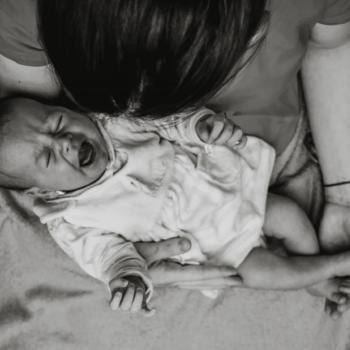It happened in Texas, and the child has cerebral palsy.
A disabled boy was refused his first Holy Communion after a priest decided the child could not understand what it meant, his family have claimed.
Eight-year-old Kevin Castro’s family have accused Father Phil Henning, priest at the Sacred Heart Catholic Church of Floresville, Texas, of ‘discrimination’ after he refused to carry out the ritual.
Instead Father Henning offered to give the the boy the sacrament of the anointing of the sick.
Irma Castro, Kevin’s grandmother, said: ‘That is the anointing they give you before death. That was very offensive.’
She claims the priest said her grandson, who suffers from cerebral palsy and has a mental age of six months, did not qualify for the Catholic initiation ‘because he was not able to understand the meaning of receiving the body of Christ.’
First Communion – the colloquial name for a child’s first reception of the Sacrament of the Holy Eucharist – is an important religious milestone for children raised in Catholic families.
Catholic doctrine says that a child receiving Holy Communion must have ‘sufficient knowledge’ of Christ, but it doesn’t specify what level of knowledge is considered sufficient.
This is tough call, and fairly subjective, but clearly it was the priest’s to make. It’s also evident the grandmother involved doesn’t understand what the anointing of the sick is really about, and that it is no longer given only to those who are near death.
Meantime, a reader over at Facebook pointed me to these sacramental guidelines:
“It is important to note…that the criterion for reception of Holy Communion is the same for persons with developmental disabilities and mental disabilities as for all persons, namely that the person to be able to distinguish the Body of Christ from ordinary food, even if this recognition is evidenced through manner, gesture or reverential silence rather than verbally” (Guidelines for the Celebration of Sacraments with Persons with Disabilities 20).
If a child or adult with significant cognitive limitations is unable to understand that the consecrated host is not ordinary bread, it is permissible for them to receive the Eucharist in order to support the faith of the family. One can presume that it is God’s desire to be in communion with this individual. (Guidelines for the Celebration of Sacraments with Persons with Disabilities 20).











